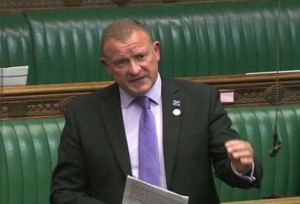 Drew Hendry MP for Inverness, Nairn, Badenoch & Strathspey has renewed calls for the UK Government to do more to protect residents in rural areas from excessive delivery charges. Mr Hendry has long campaigned for this matter in his previous role as Leader of the Highland Council and welcomed the work done by the Trading Standards team at the Highland Council to raise awareness of the scale of the issue.
Drew Hendry MP for Inverness, Nairn, Badenoch & Strathspey has renewed calls for the UK Government to do more to protect residents in rural areas from excessive delivery charges. Mr Hendry has long campaigned for this matter in his previous role as Leader of the Highland Council and welcomed the work done by the Trading Standards team at the Highland Council to raise awareness of the scale of the issue.
The Highland Council’s Trading Standards service in 2011 began an enforcement project which was prompted by a growing awareness that buyers in the Highlands believed they were getting a raw deal on delivery charges. Research carried out by Citizens Advice Scotland showed those in the Highlands are charged an extra £15 on average.
Commenting, Mr Hendry said:
“In this day and age, more and more people are turning to online shopping when making their purchases. However, those in more rural areas, such as the Highlands are being forced into paying excessive charges for the delivery of items. This is manifestly unfair.
“This has been a long running concern for my constituents and more needs to be done to protect residents in rural areas from being unfairly discriminated against by some online sellers due to their place of residence.
“Today I questioned the Leader of the House in Parliament and asked him to hold a debate on the matter. In addition I have also raised an early day motion in order to gain the wider support from MPs, in asking them to back calls for retailers to end excessive delivery surcharges and to offer delivery by Royal Mail when this is the cheaper option.
“New regulations which came into force in 2014 have gone someway to highlighting the issue and although the Scottish Government has already been successful in getting the UK Government to adopt our Statement of Principles, more work is urgently needed.
“Consumers of Inverness, Nairn, Badenoch and Strathspey should automatically get the choice of the cheapest delivery option and the UK government needs to find ways to enforce this.”
